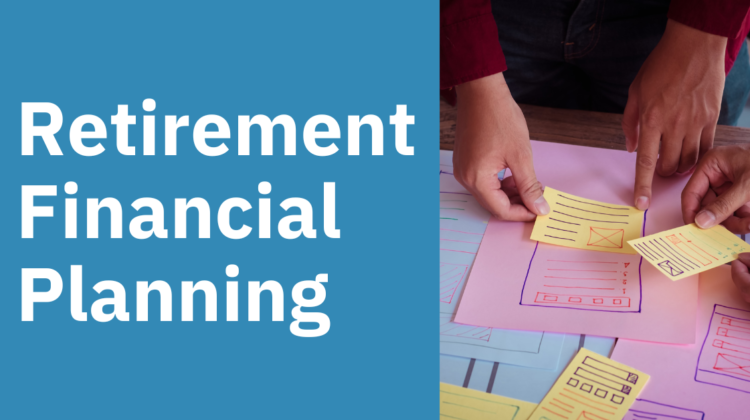
Retirement Financial Planning: Strategies for a Secure Future
The years leading up to retirement can be a time of great excitement and concern. Retirement is a significant milestone, and having a well-thought-out financial plan can help make the transition to a secure, comfortable retirement life a reality.
In this blog post, we will explore financial planning for retirees strategies and how they can be used to create a secure future for yourself and your family.
Develop a retirement strategy
Developing a retirement strategy is an essential step in any financial plan. It’sIt’s crucial first to determine how much you will need in retirement and then create a system to save for that amount.
Evaluate the current financial situation
The second step in your financial planning during retirement is to dive deeply into your current financial situation. This should include creating a realistic budget and understanding your income sources, expenses, assets, and liabilities.
It’s essential to be honest, and look at the bigger picture– not just the numbers. Evaluating your current financial situation will give you a better understanding of where you stand so that you can make informed decisions throughout the rest of the planning process.
Research investment options
Researching investment options is an integral part of retirement financial planning. With so many options available, it can take time to determine the best course of action for your retirement savings.
It’s essential to consider the type of investment, the risk involved, and the expected return. It would help if you also thought about whether you’d prefer to invest directly in stocks, bonds, or mutual funds or to use a managed portfolio. Researching your options and developing a plan tailored to your goals and risk tolerance will help ensure your financial security in retirement.
Create an emergency fund
Creating an emergency fund is an essential part of a plan for retirement financial planning. This fund should be separate from your regular savings and should contain enough money to cover at least three to six months of expenses in case of an emergency.
The money should be kept in a liquid account, such as a savings or money market fund, to be easily accessible if needed. It’sIt’s essential to regularly review your emergency fund to ensure it contains enough money to cover unexpected costs and to stay informed of any changes in interest rates.
Utilize tax-advantaged retirement accounts
One of the essential strategies to ensure a secure retirement is to utilize tax-advantaged retirement accounts.
Contributing to these accounts helps grow your retirement savings and security. It also reduces your tax burden by allowing you to defer taxes on contributions and earnings until money is withdrawn in retirement.
Accumulate retirement savings
Accumulating retirement savings is an essential part of any long-term financial plan. It is important to start saving for retirement as early as possible, as the power of compounding can make a massive difference over time.
It is also important to know the different tax implications of these accounts and how to maximize them for the most efficient retirement savings. Contributing to retirement savings should be a priority for those looking to secure a more secure financial future.
Establish a budget
Establishing a budget is an essential part of retirement financial planning. Knowing how much money you need to live on each month and how much you can save can help you create a financial plan that will last you through retirement.
To create a budget, consider your expenses, including any debt payments, food, utilities, and insurance. Once you have a reasonable estimate of your monthly fees, you can determine what you have left to save for retirement each month. By creating and following a budget, you can help ensure that your retirement savings last for the duration of your retirement.
Monitor and adjust your retirement plan accordingly
As part of your retirement financial planning, it is essential to monitor your retirement plan throughout your life. You should review your investments, saving strategies, and other assets regularly to ensure that you are on track to meet your retirement goals.
When necessary, you should adjust your plan to reflect any changes in your financial situation, such as income and expenses, as well as any changes in market conditions and the economy. Regular monitoring and adjusting your retirement plan will ensure that you maximize your retirement savings and have the secure financial future you desire.
Summary
In conclusion, financial planning for retirees requires careful planning and attention to detail. By taking the time to understand your needs and goals, you can create a retirement plan that will help you achieve financial freedom. Consider speaking with a financial advisor to help you create a plan that works for your retirement.
